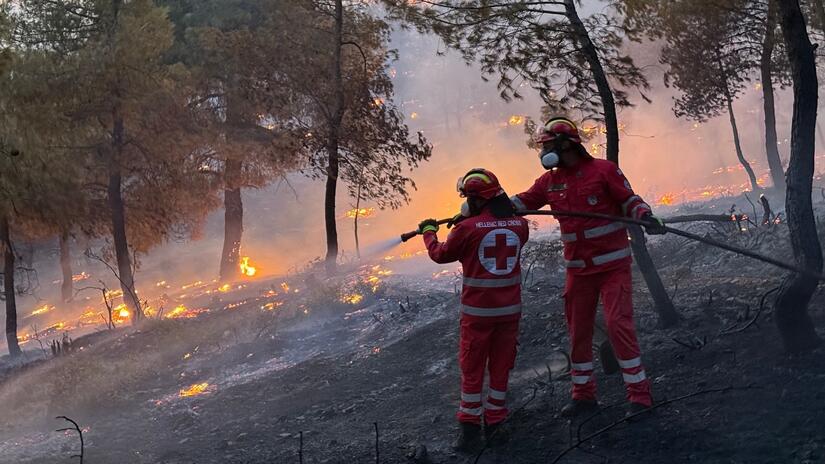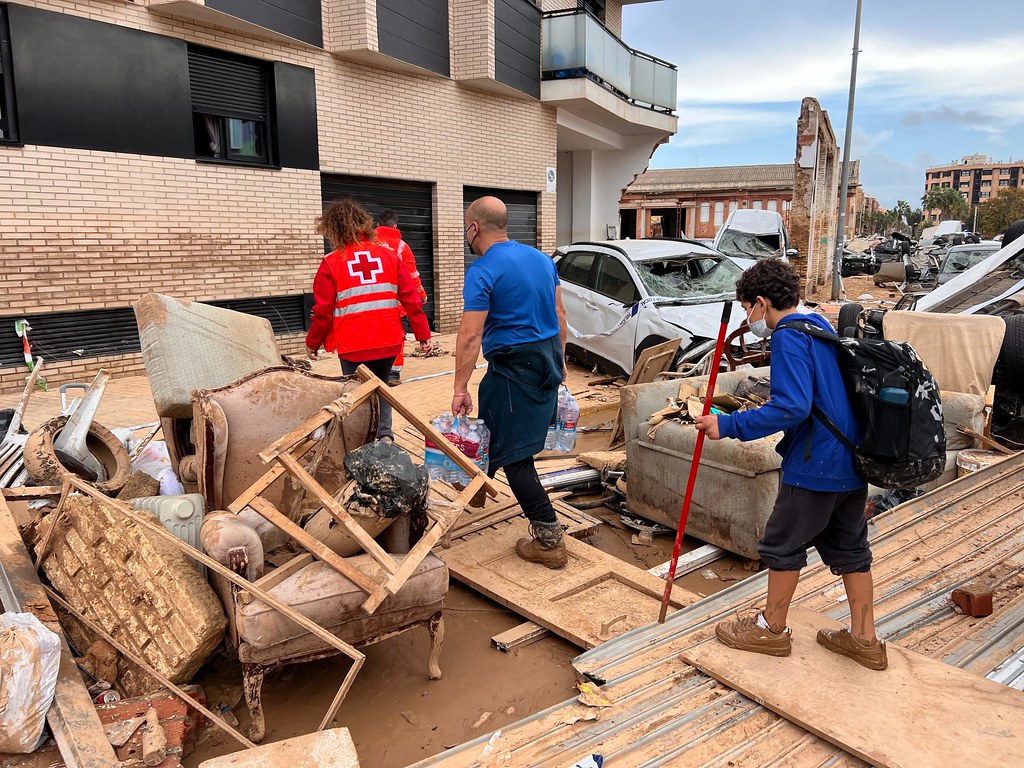Facing the heat: Preparing Europe for a new climate reality
As wildfires rage across Bulgaria, Greece, and Germany, and heatwaves grip cities from Vienna to Malaga, one thing is clear: climate-related hazards are no longer exceptional events. They are becoming the new norm for millions of people across Europe.
This summer alone, thousands have been evacuated, homes destroyed, and lives lost. Yet behind these worrying headlines, there are stories of resilience and solidarity. Stories which demonstrate the power of enabling local communities and institutions to lead their own response.
The Preparedness Union Strategy provides a vital framework for all EU Member States to develop the tools, training, and coordination needed to respond swiftly and effectively to emerging threats and crises, including climate-related emergencies. To build preparedness across the whole of society for lasting impact, these efforts must go as local as possible and ensure that no one is left behind.
Preparedness Saves Lives
In Greece, trained volunteers from the Hellenic Red Cross are working side by side with firefighters to support evacuations and provide first aid. In Germany, the German Red Cross, together with civil protection authorities, has a pre-arranged system that allows them to activate emergency drinking water plans based on weather forecasts to help reduce expected water shortages. This type of anticipatory action can reduce the impact of climate hazards before they strike.

© Hellenic Red Cross Society
Efforts like these are not improvised—they are the result of established protocols, preparedness plans, and investment in local capacity. People need to have the right information, knowledge and tools to be able to act early to save lives and prevent loss and damage.
Prevention Starts in the Community
Beyond emergency response, preparedness is also about prevention and protection. Across Europe, people are reducing risks and strengthening their readiness with the support of Red Cross volunteers.
In Spain, the Spanish Red Cross mobilised thousands of trained personnel and supported over 100,000 spontaneous volunteers during the 2024 Valencia floods: providing health care, logistics, and coordination. In France, the French Red Cross runs school-based programmes like Option Croix-Rouge and Paré pas Paré, which teach risk awareness and first aid to children and young people, building a culture of preparedness from an early age. In Hungary, the Hungarian Red Cross translates emergency alerts into accessible messages and delivers them door-to-door, especially to marginalised communities, while distributing hydration kits during heatwaves.

These actions reflect the fact that climate resilience starts at the local level. Affected people are not only experts on their situations, but they are also first responders and key agents of change. This is why two-way conversations in all aspects of disaster risk management – from early warning systems to evacuation planning, from public health messaging to recovery efforts – are crucial.
Engaging communities, listening to them, and acting on their feedback helps build trust, strengthens local ownership, and leads to more effective and sustainable outcomes. When people are informed, consulted, and involved, they are more likely to take action, support their neighbours, and contribute to long-term resilience.
Putting People First
Not everyone in the community is the same, and within and across communities there are wide ranging needs, capacities, and risks. It follows that climate hazards do not affect everyone equally – older people, underserved communities, and those without stable housing are among those who are more exposed.
Preparedness efforts must be inclusive by design. To truly protect all people, we must recognise that vulnerability is not inherent. It is created and exacerbated by systemic barriers such as poverty, discrimination, gender, migration status, disability, and age.
Leaving no one behind means identifying and addressing these barriers proactively. For example, when temperatures reached near-record levels (48.8 °C) in Italy in the summer of 2023, the Italian Red Cross mobilised volunteers in urban and rural areas, prioritising housebound older people and people in migration or in informal settlements. In the mountainous region of central Croatia around Slunj, Croatian Red Cross branch volunteers provide regular support and care at home for 160 older people in very remote areas. They are trained to continue these activities during the challenging conditions that affect the mountain during winter, when access to goods and services is even more difficult.
Action must prioritise the people who are most affected by disasters. This requires mapping who is most at risk, engaging with communities to understand their needs, and tailoring preparedness efforts accordingly.
Local Action, Lasting Impact
As Europe confronts a future shaped by climate extremes, the question is no longer if we need to prepare, but how we choose to do so. The answer lies not only in policies and plans, but in people: in the volunteers knocking on doors, the children learning first aid, the neighbours checking in on one another. National Red Cross Societies support these locally led actions before, during and after emergencies. Beyond their contribution to preparedness, they work with communities to strengthen their overall capacity to cope with and recover from crises.
Climate resilience is not built in isolation; it is co-created within communities. For EU policymakers, this means ensuring that frameworks like the Preparedness Union Strategy are not only well-funded and inclusive but also rooted in the lived realities of those most affected. To face the heat ahead, we must invest in the strength of local action and make sure to put people first – especially those too often left behind.
For media inquiries, please contact Eva Oyón on: eva.oyon@redcross.eu or +32 2 235 09 22

